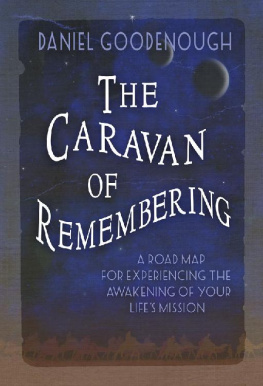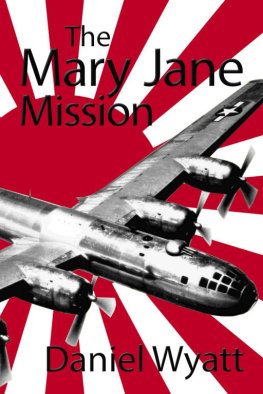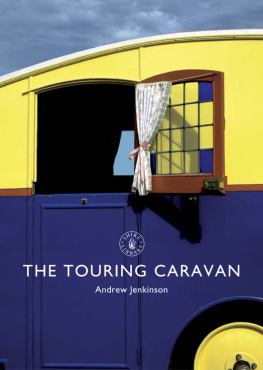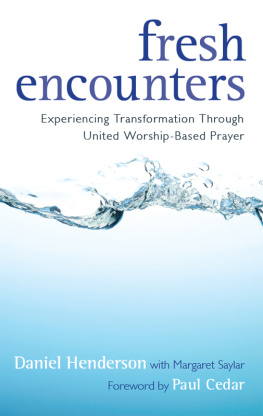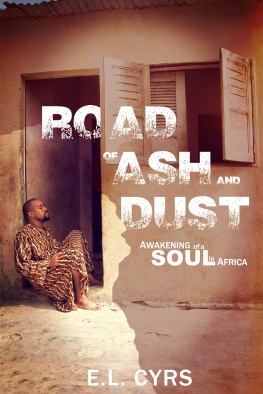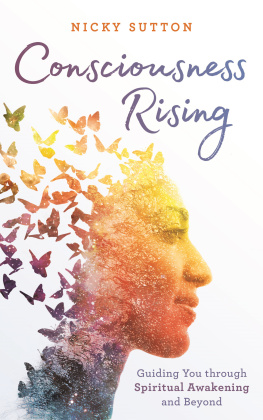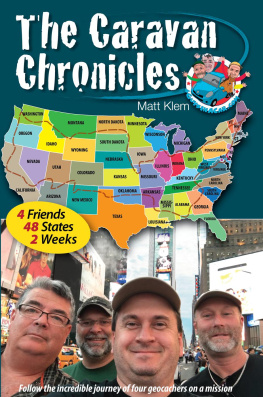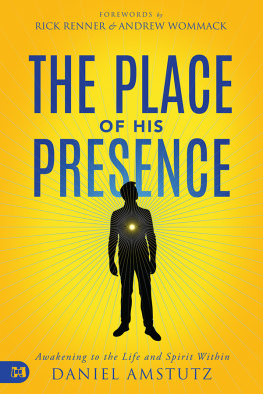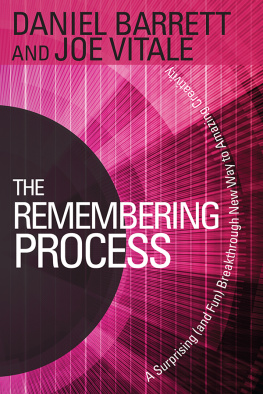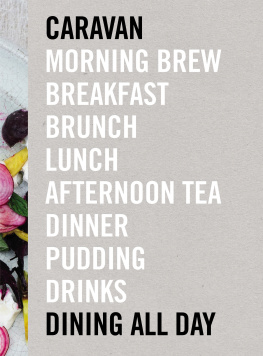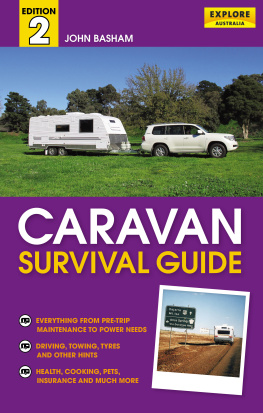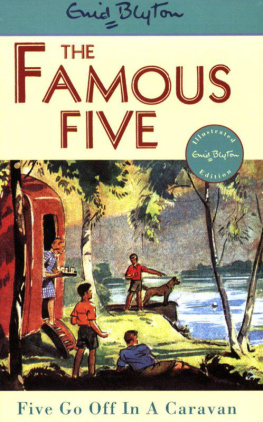

Copyright 2016 by Daniel Goodenough
All rights reserved. No part of this book may be reproduced in any form or in any way without prior consent from the publisher, except in the case of brief quotations embodied in critical articles or reviews.
Cover and text design by Bookwrights
Printed in the United States of America
Publishers Cataloging-in-Publication
(Provided by Quality Books, Inc.)
Goodenough, Daniel, 1952- author.
The caravan of remembering : a road map for experiencing the awakening of your lifes mission / Daniel Goodenough.
pages cm
LCCN 2016908157
ISBN 978-1-943222-65-0 (paperback)
ISBN 978-1-943222-05-6 (hardcover)
ISBN 978-1-943222-01-8 (ebook)
1. Self-actualization (Psychology)Fiction.
2. Vocational guidanceFiction. 3. Fantasy fiction.
4. Psychological fiction. I. Title.
PS3607.O5632C37 2016 | 813'.6
QBI16-600093 |
Authors Note:
Inevitably, an authors life experience will influence the stories they write. While events from the authors life created a background of reference, Caravans story and its characters are fiction, and should not be taken as the authors life story or the story of anyone involved with The Way of the Heart.

PO Box 271396
Fort Collins, CO 80527
heartswaypress.com
thecaravanofremembering.com

Contents
Chapter 1
Chapter 2
Chapter 3
Chapter 4
Chapter 5
Chapter 6
Chapter 7
Chapter 8
Chapter 9
Chapter 10
Chapter 11
Chapter 12

THE LONG-AWAITED CARAVAN HAS arrived: a story, a journey, and a call to live a life of authentic purpose. Crafted by Daniel Goodenough, an experienced life-coach and co-founder of The Way of the Heart, Caravan looks at the question of lifes purpose in a fresh, creative way. Ever since he was aware that he was aware, as he would say, his dedication to helping people discover their true calling has never wavered. Thousands of hours of research and meditation, above and beyond the famous number of 10,000 necessary hours of conscious practice, have gone into articulating this process, which is now available to us as Caravan.
One intriguing bit of research suggests that if athletes intensely imagine they are performing their sport, they actually improve. This, mind you, is from a chair in the living room. If, for example, I am an archer, I can concentrate on pulling back the bow, in my minds eye. I see myself putting into place all the concentration and movements I have been trained to do as I let that arrow fly. This strategy of using the imagination to understand our life mission is the genius of Caravan. The great Sufi, Ibn alArabi, understands the imagination as a faculty of the soul, which marries the sensory world of form with the formless world of consciousness. For the Sufis, the imagination is an important tool of realization. Caravan allows us to enter into this imaginal world, bringing together the sounds and shapes of the desert with a new awareness of life mission.
In Caravan we enter the mind of a person very much like ourselves, someone with a work life as a graphic artist, who rents a place to live, who will be involved in a budding relationship. He has his favorite haunts: the bookshop, the coffee shop. And somehow a more spacious reality in the figure of Verity intervenes. Hes walking in the park; hes in another world, the world of the desert.
Its a great pleasure for us as readers to suddenly find ourselves tagging along for this experience. What would it be like to suddenly find yourself in the desert? Imagine yourself as a part of a caravan with camel bells tinkling and other wanderers gathered around a campfire, guiding you to remember.
In his masterful story, Goodenough introduces us to the features of what it might be like to be called to something greater than yourself and yet something that you yourself are very much a part of. Through the course of the main characters journey, we embark on a pilgrimage to a deeper, richer part of our own knowing. We are invited to think about the kind of story we tell about our lives, and to reflect on other ways of talking about our personal history. If we tell our story differently, is that a way to develop, to broaden and to grow?
The thrill of taking part in Caravan, part adventure, part science fiction, part personal growth, is that we are never subjected to pointed personal remarks aimed toward remaking our personality. No, instead we are invited to watch, to witness, and to imagine what it would be like to be a pilgrim searching for our lifes purpose. And we are talking here about a modern pilgrim, one who will benefit from Daniels on-going research into the evolution of many of the important fields in our time: physics, biology, psychology, sociology, visual and performing arts, neuroscience, computers, business and spirituality. Daniels unique gift is that he is artful in his guidance. He is fond of quoting Rumi, who says, Let the beauty you love be what you do. And in the nineteen years I have known him, Daniel has held to this. Its what he does, and its what he helps others to do as well. Love what you do. Do what you love.
The desert appears in the worlds great spiritual traditions, including the desert fathers whose spiritual insight Thomas Merton sought out from his monastery in Kentucky. Also the great stories of our time, such as Laurence of Arabia and The English Patient, bring us to a new understanding of our humanity, which comes to us in the desert. We need the desert to find that part of our being where our longing can be most deeply felt. The desert intrigues us, I think, because we need help in finding our way. The desert is the home of Khidr, in the Sufi tradition, the green man of the desert, who is the ultimate guide.
Here, in Caravan, the guiding is done both in community and in individual sessions. And isnt that our own experience? Our child has an insight, the person clerking our groceries offers a pertinent remark, a friend tells us about making to-do lists in which there is an intriguing column: important but not urgent. Then, somehow we resonate in a new way about our lives. Likewise, in Caravan we are introduced to figures who are larger than life, including Kairos, whose being invites us to contemplate the way that eternity enters into a moment. All of this allows us to move toward a deeper appreciation of why we are on this planet we love so well.
The Tibetans have a term called skillful means, used when theres a need to address our natural resistance to moving into a new way of understanding ourselves and our world. Daniel is very knowledgeable here as well, having had years of practice in helping people move safely and surely out of their comfort zone, through unaddressed grief, disconnection to Sprit, doubt and fear, and in short helping us get out of our own way.
The art of Caravan is that it is a full-on exploration of our essential questions: Why are we here? What brings us real happiness? Who can guide us in our lives and towards what? If we imagine our heart as a fertile field,
Next page
